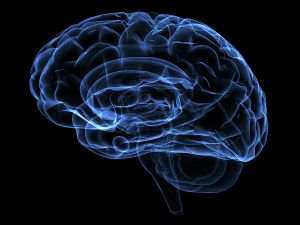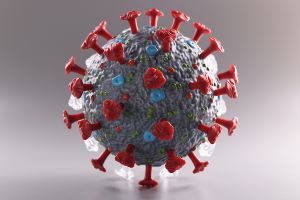March 19, 2024
by Patricia Tomasi

A new study published in Cell and Tissue Research looked at the identification of vagal afferent nerve endings in the mouse colon and their spatial relationship with enterochromaffin cells. “The purpose of this study was to identify for the first time, the sensory nerve endings of the vagus nerve in the inner lining (called the mucosa) of the colon,” study author Nick Spencer told us.
[More]
September 12, 2023
by Patricia Tomasi

A new study published in the Journal of Child Development looked at infection detection in faces and children's development of pathogen avoidance. “We were interested in understanding whether children ages four to nine years old can avoid and recognize sick faces,” study author Tiffany S. Leung told us. “Previous studies have reported that adults can use faces to recognize when someone is sick and make judgements about whether to approach or avoid them."
[More]
August 8, 2023
by Patricia Tomasi

A new study published in the Lancet looked at the effects of COVID-19 on cognitive performance in a community-based cohort. “Many people report ongoing symptoms after COVID-19, including brain fog and problems with concentration, memory and attention,” study author Dr. Rose Penfold told us. “Previous research has shown that some of these people perform worse on cognitive testing. However, most of this research has been done in hospitalized patients who had more severe infection.”
[More]
July 4, 2023
by Patricia Tomasi

A new study published in the Journal of Psychological Medicine looked at early-initiated childhood reading for pleasure and its associations with better cognitive performance, mental well-being and brain structure in early teens. “I and my co-authors wanted to understand the effects of reading for pleasure in young children on brain structure, cognition, school academic achievement and mental health,” study author Barbara J. Shakahian told us. “Some of the previously published literature suggested that there should be beneficial effects on cognition, but there had not been a very large scale study, with over 10,000 adolescents before on all these measures together.”
[More]
May 16, 2023
by Patricia Tomasi

A new study published in the European Journal of Social Psychology looked at how the mindset of birth predicts birth outcomes. “Broadly speaking, the study is about the role of psychology in childbirth,” study author Lisa Hoffman told us. “We were interested whether psychological factors may have an effect on birth outcomes and whether, in turn, psychological factors (e.g., postpartum well-being, postpartum depression) may be predicted by birth.”
[More]
March 14, 2023
by Patricia Tomasi

A new study published in the Journal of Child Development looked at how caregiver speech can predict the emergence of children’s emotion vocabulary. “We were interested in understanding how children learn words like ‘happy’ or ‘sad’ that label emotional experiences,” study author Mira L. Nencheva told us. “We were curious if the words that surround emotion labels might help children learn their meaning.”
[More]
December 27, 2022
by Patricia Tomasi

A new study published in Nature Communications delved more into autism by growing brain-like organoids. “The human brain is unique, and certain aspects of human brain development, and brain diseases, are notoriously difficult to study using animal models,” study author Alex Shcheglovitov, PhD told us. “We wanted to develop a new method to model early aspects of human telencephalic brain development in health and disease. Our approach was to make human brain organoids in a robust and reproducible manner.”
[More]
November 22, 2022
by Patricia Tomasi

A new study published in the Journal of Acquired Immune Deficiency Syndromes looked at longitudinal outcomes in children with HIV-associated neurocognitive disorders in Zambia. “Our study is about cognitive development in children and adolescents with HIV,” study author David Bearden told us. Bearden is an assistant professor of Neurology and Pediatrics at the University of Rochester Medical Center.
[More]
September 27, 2022
by Patricia Tomasi

A new study published in Psychiatry Research looked at whether perceived stress can be linked to enhanced cognitive functioning and a reduced risk for psychopathology. “Our study tested whether low to moderate levels of perceived stress are associated with benefits in cognitive functions and mental health,” study author Assaf Oshri told us. “We relied on the Hormesis model, which is from the field of toxicology- assuming that not all stress is bad for the organism and that there is a threshold of stress from which stress is bad for you.”
[More]
December 28, 2021
by Patricia Tomasi

Two new studies published in the Journal of Biological Psychiatry and BioRxiv focused on understanding how the frontal part of the cortex known as the prefrontal cortex (PFC) develops. “We were interested in studying this regions as it is important for higher order cognition (think problem solving, planning complex actitivies), regulating emotion and social behaviors, which are most advanced in humans and behaviors disrupted in most neuropsychiatric disorder,” studies author Kartik Pattabiraman told us. “Furthermore, the PFC is greatly expanded in primates and are further specialized i.e. unique connections and cellular properties in humans. For example, excitatory neurons in human PFC form more connections with other neurons than neurons in monkeys and other animals.”
[More]